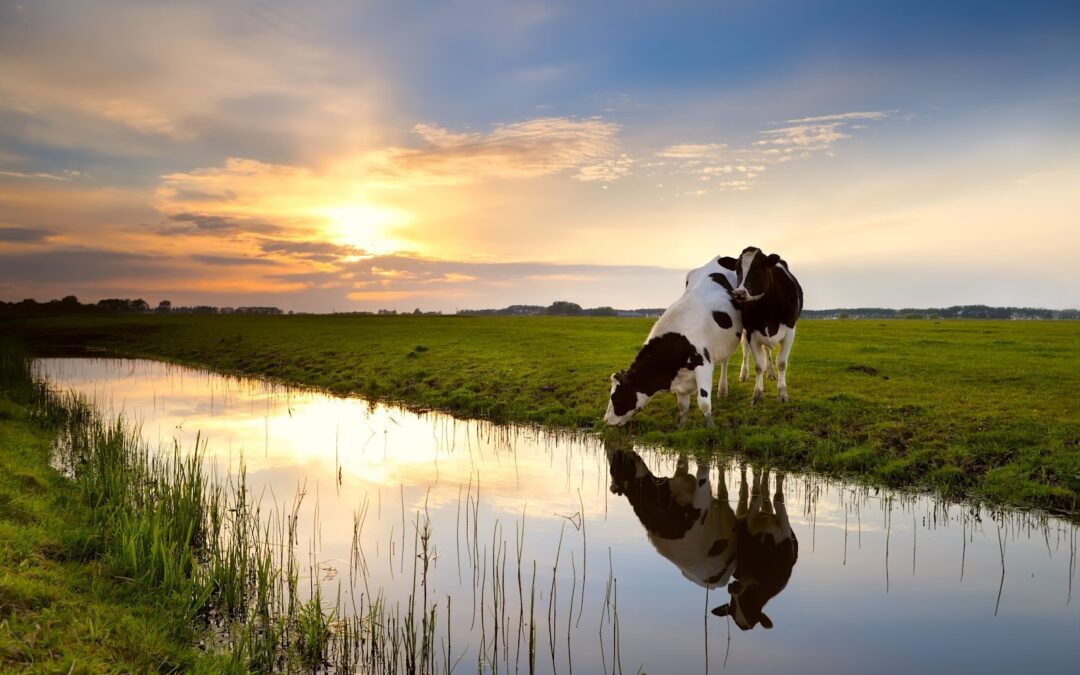Livestock Wastewater
Livestock and farming wastewater can contain a significant amount of nitrogen, phosphorus, antibiotics, harmful bacteria, and organic matter. If not properly handled, this wastewater can cause adverse health effects in humans and animals living near farmland. In addition, wastewater that is not treated or improperly treated can cause significant damage to surface and groundwater, endangering the drinking water supply and surrounding ecology. Luckily, several different treatment options can be implemented to solve this problem.
Mechanical Water Separation
Mechanical wastewater separation does not rely on chemical treatment, but depends on centrifuges and pumps to separate slurry, solids and organic materials.
Wastewater Pumps
Pumps are an integral part of mechanical wastewater treatment. By utilizing industrial-grade pumps, mixed solid-liquid slurry is transferred from beef, chicken, or pork farms into lagoons and onto further processing stages with effortless efficiency. This stage of processing helps reduce solid size, which protects downstream equipment. The heavy-duty pumps used in agricultural water management are able to pass thick slurries without becoming clogged or damaged.
Wastewater Centrifuges
A wastewater centrifuge is a separation machine that revolves at a high velocity in order to generate a strong centrifugal force. By leveraging gravity, centrifugal wastewater treatment systems separate water from solid refuse in a process referred to as “dewatering”. Dewatering agricultural waste has the dual benefit of decreasing the volume of residual solids – which reduces costs for subsequent transportation, processing, disposal, or storage of this byproduct – while simultaneously freeing up a usable water supply.
Chemical Water Separation
Coagulants and Flocculants
Wastewater treatment using coagulation and flocculation is a relatively new technique used to separate solid and liquid material in agricultural waste. In this multi-step process, chemical additives are added to slurries to help bind solids together.
First, coagulants are added, which bind minuscule suspended solids to each other, forming larger solid particulates. Next, chemical flocculation occurs, which converts these coagulated particles into even larger clumps, which are able to settle rapidly.
Depending on filtration requirements, the water obtained through chemical and mechanical water treatment may be immediately reusable or may require additional stages of treatment and purification.
Comprehensive Wastewater Solutions in Agriculture
Wastewater management in agriculture is an environmentally friendly, sustainable way to reduce fresh water consumption in livestock farming. In order to safely reuse wastewater or recycle it back into natural water bodies, it’s essential to select an appropriate, comprehensive wastewater management solution. Choosing the right water management method is a highly custom decision and depends on water quantity and characteristics, as well as the level of treatment required to meet your goals.
At Yellowstone Industries, we combine decades of water management experience with cutting-edge technology. The strategies we implement are driven by an expert assessment of your specific needs, and the equipment we deploy is always chosen with quality, effectiveness, cost-efficiency, and easy maintenance in mind.
If you would like to learn more about how Yellowstone can help you with your agricultural water-management needs, please contact us to learn more.

